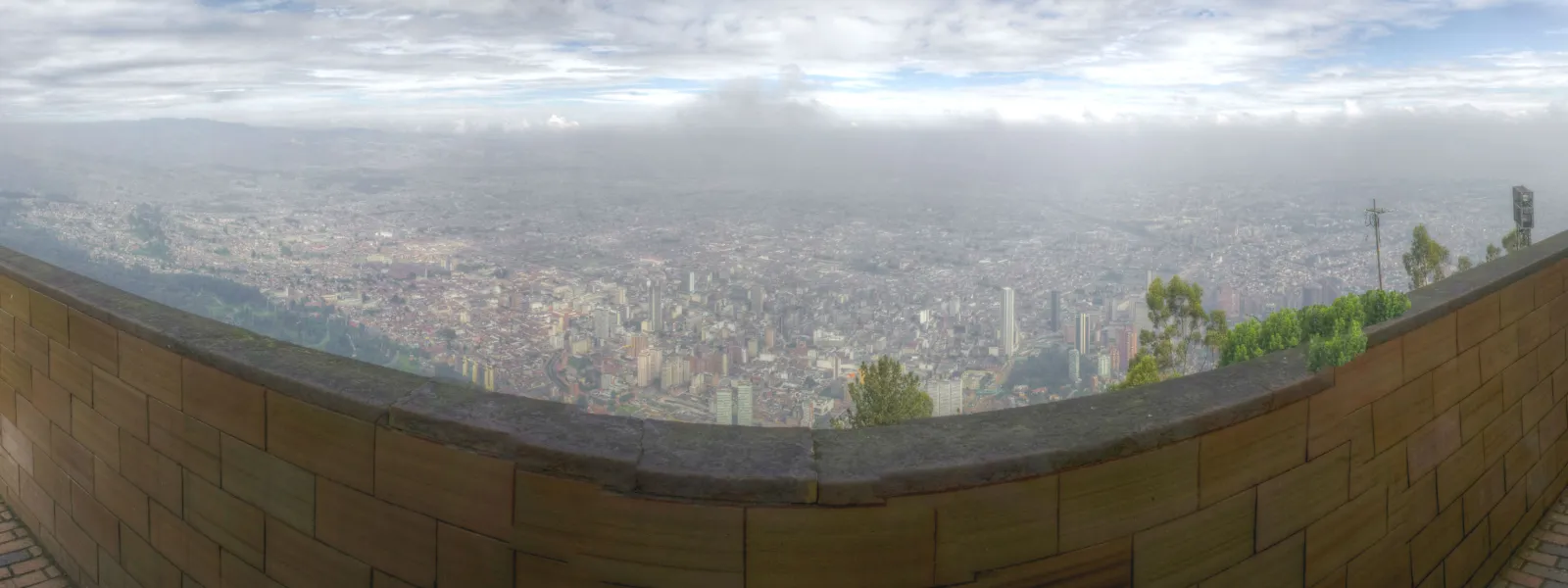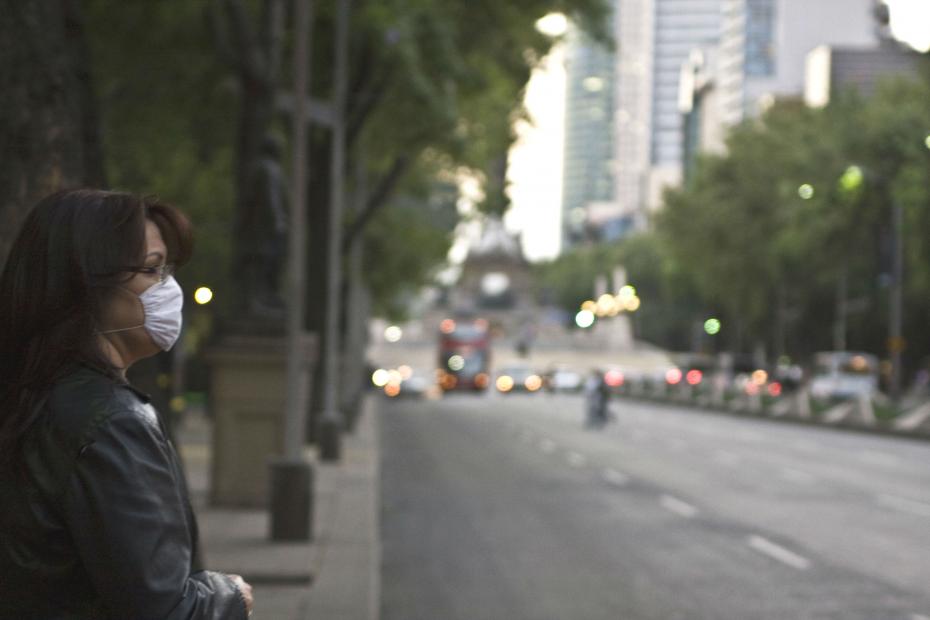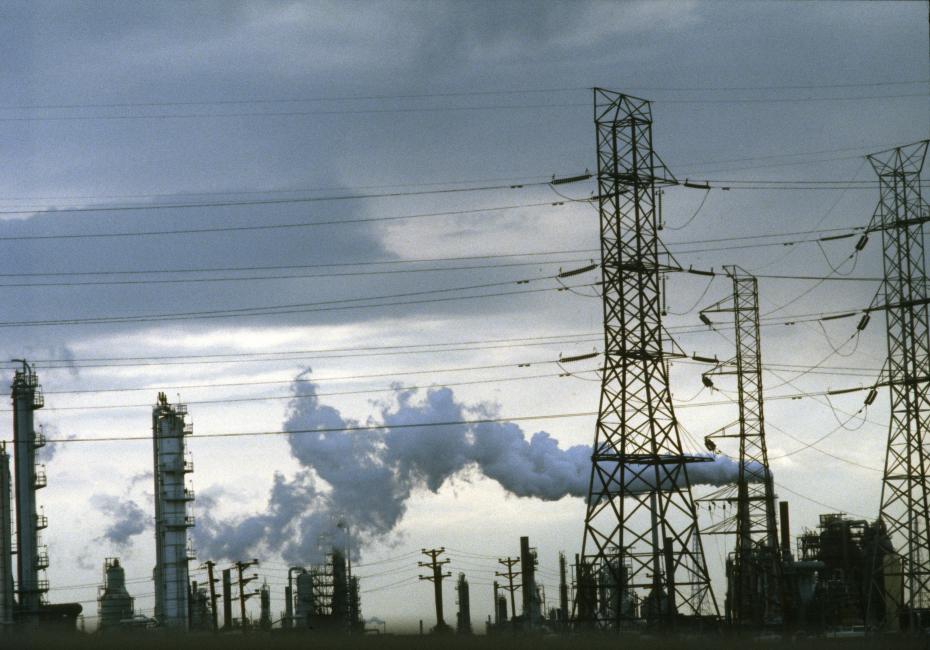
Clean air should be a human right, says UN Special Rapporteur
Photo: Mariusz Kluzniak (CC BY-NC-ND 2.0).Even on a clear day in Bogotá, the air pollution can be so overwhelming that the sky is cast in a foggy, washed out haze that hangs over the city. In Bogotá—as in many cities across the Americas—air pollution has become a part of daily life. But it shouldn’t have to be that way.
In a recent report, David Boyd, the UN Special Rapporteur on human rights and the environment said that breathing clean air should be considered a human right. While the majority of countries around the world have recognized the right to a healthy environment, the right to clean air does not yet enjoy the same level of global recognition.
Air pollution is a dual killer: not only is it one of the biggest risks to public health worldwide, airborne pollutants also exacerbate the climate crisis.
States and the human rights community, therefore, must incorporate the Rapporteur’s recommendations into law, because tackling air pollution is the best thing we can do to improve public health while also saving the planet.

Air pollution: a dual killer
More than six billion people, including two billion children around the world, are breathing air that adversely affects their health, according to the World Heath Organization (WHO). The effects of ambient and household air pollution cause roughly 7 million premature deaths worldwide each year, more than 300 thousand of which occur in the Americas alone.
Hundreds of millions of people around the world suffer from illnesses caused by air pollution, which is considered one of the five leading factors contributing to non-communicable diseases like stroke, heart disease, chronic obstructive pulmonary disease, and cancer. Fine particulate matter like soot, black carbon, sulfates, nitrates and heavy metals all significantly increase the risk of these diseases.
Moreover, air pollution disproportionately affects society’s most vulnerable populations. Children and the elderly are particularly affected by airborne pollutants, and suffer disproportionate impacts including illnesses and chronic breathing problems. Low income and poor communities, more often located near the sources of pollution—factories, power plants, and busy roads, among others—also suffer outsized health risks.
Global air pollution is more than just a public health concern. Often, the same polluting activities that harm human health are also speeding up climate crisis.
Research shows that black carbon—generated by burning fossil fuels, biofuels, and biomass—may accelerate snowmelt in glaciers, contributing to water insecurity and natural disasters. And methane, another short-lived climate pollutant, can trap up to 30 times more heat than CO2, speeding up global heating.
Both issues amount to a costly problem. The World Bank estimates that global costs of air pollution will soon exceed $5 trillion per year, and says that unless countries curb global air pollution, air pollution-induced mortality could increase 50 to 100 percent by 2050.
The economic benefits of slowing climate change will far outweigh the astronomical costs caused by flooding, more powerful storms, and crippling droughts, which could reach hundreds of billions of dollars by the end of the century, according to a report by the United States’ fourth National Climate Assessment.

Respecting human rights
While reducing air pollution makes good economic sense, curbing airborne pollutants is also a matter of respecting human rights. Besides violating the right to a clean and healthy environment, poor air quality can affect one’s right to life, health, water, food, housing and adequate standard of living, as well as the rights of the child, the UN report said.
According to the Special Rapporteur, States should immediately devise action plans that:
- Monitor air quality and its impacts on human health;
- Assess sources of air pollution;
- Make information publicly available and release public health advisories;
- Establish air quality legislation, regulations, standards and policies;
- Develop air quality action plans at the local, nation, or regional level;
- Implement that air quality action plan and enforce its standards; and
- Evaluate progress and strengthen the plan to ensure the standards are met.
Not only does this framework charge states with monitoring air quality, educating the public on air pollution, and making information accessible, it also urges States to establish strong, enforceable standards that will hold polluters accountable. Without those standards, improving air quality would be impossible.
What’s more, States should apply the precautionary principle and use adequate margins of safety in order to protect society’s most vulnerable.
Cities across Latin America are already starting to take air pollution seriously. Curitiba, Brazil, for example, built an extensive rapid bus system and, in 2013, launched an ambitious plan to add 300 kilometers of bicycle paths. Now, life expectancy in the city is two years longer than the national average, and the city has relatively low infant mortality, according to the WHO.
In 2014, the Chilean government implemented a progressive tax on air pollution, taxing industry at higher rates in more densely populated areas to hold polluters accountable for their disproportionate impacts on urban populations.
Although these examples show that change is possible, air pollution won’t be solved overnight, and States must begin establishing ambitious regulations to curb airborne contaminants. Otherwise, the world will continue coughing and sputtering into the 21st Century, as the impacts of climate crisis only continue to get worse.
Scott Squires

Scott Squires assisted the AIDA communications team with blogging, media outreach, and other tasks to further AIDA’s projects. He is currently a graduate student pursuing Masters' Degrees in Global Policy Studies and Journalism at the University of Texas at Austin.
